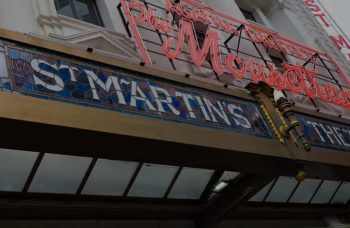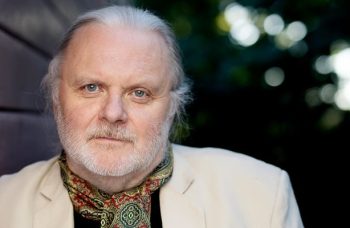The National Theatre of London brings yet another theatrical classic to screens worldwide through their ongoing National Theatre At Home program. This past week, at-home audiences had the chance to view National Theatre’s Midsummer Night’s Dream, a production of the Shakespeare classic with some modern twists, filmed at the Bridge Theatre. And while always a favourite, there are aspects of this production that gave some pause and left me wanting at moments.
Out of formality, the story: a love rhombus between Hermia, Lysander, Helena, and Demetrius. Hermia loves Lysander, her father forbids it and demands she loves unwanted suitor Demetrius, as Helena pines over the cold shoulder of Demetrius. The whole lot runs into the forest overnight for a rom-com of errors starring fairy royalty. Meanwhile, Bottom, the most illustrious performer of all history, is separated from his acting troupe and given a donkey’s head through magical high-jinks by Puck the fairy. Oh, and the wedding of much less interesting people bookends the whole thing.
For the most part, the plot of the show proceeds as normal, save for one significant change- Titania and Oberon, the fairy queen and king, switch dialogues and therefore situations within the play. Titania now employs the mischievous Puck for revenge against Oberon, who keeps in his custody the sought after changeling boy. Now at first, this strikes as a bit of a face value switching of power roles, subtle but interesting. Theseus and Hippolyta, the engaged couple, are also played by the same actors with Theseus presenting as skin-crawlingly domineering towards his bride-to-be, so seeing her then be the driving force of the revenge plot has a juicy payoff.
But the most evident thing this switch affects is what gives the greatest pause in this production. It is now Oberon who is magically tricked into love with Bottom. This could have been beautifully representative, and while a humorously committed moment of love in any given production, it feels that Nicholas Hytner’s direction strongly pushes the so-called hilarity of it being two men in love. At times it seems that the performers are looking to truly give sensitivity and passion beyond the cheap “joke”, but every act of love is met by roars of laughter. This isn’t merely on the audience, as the directorial choices set the stage for viewing same-sex attraction as laughable.
There are absolutely positive aspects to National Theatre’s Midsummer Night’s Dream as well. The play is regularly stolen by Hammed Animashaun as Bottom and David Moorst as Puck. You can see how quick Animashaun’s mind works in every aspect of his craft, shining right through the dullard head of Bottom. He throws endless asides, wrings out every deserved laugh of his bits, and is always deeply rooted in the reality of his acting troupe (and just as comfortably, the lounge of fairies). Moorst is a clearly skilled circus performer, not only delivering spellbinding dialogue from silks but also contorting and controlling his body in such odd and jovial ways that he brims with the energy of a hobgoblin.
The fairies are in fact mostly composed of circus performers, and the sets use of acrobatic trappings adds a character to the sparse set that feels at home with the fairytale folk. But not all design aspects add as much. The show begins with a processional song and reveals Theseus standing before Hippolyta, who is contained in a glass box. A bizarre way to begin, it gave a strong highlight of the patriarchal influence that manifests the action of the play, but tonally is completely out of place from the rest of the show, especially as we then see Hippolyta walking freely with Theseus later. While big choices were made revolving around Hippolyta/Titania and Theseus/Oberon, including some vague hinting at them being aware of their dual roles, a lot of the effort didn’t seem to follow through.
Midsummer fits into the category of “When it’s good it’s really good, and when it’s bad it’s still pretty good”, which can make it hard to dig deep with critique. But it’s an important thing to do, especially when there is still a lot worthwhile. National Theatre’s Midsummer Night’s Dream has a lot going for it, but the aspects that fell flat fell hard. While still a sweet dream, there’s a lot of morning haze to deal with.





